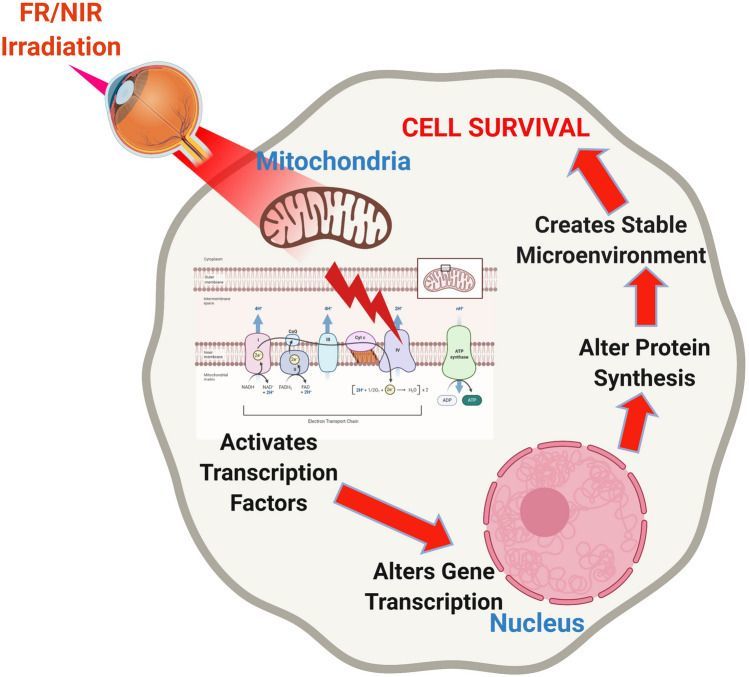
Photobiomodulation (PBM therapy) is a type of alternative therapy previously known as Low Level Light Therapy (LLLT) that utilizes monochromatic lasers at far-red to near-infrared wavelengths which are outside the normal visible spectrum. These lasers are applied to the affected part of the body with goals of repairing tissues or reducing inflammation. In this study, researchers utilized animal (rat) models to evaluate the impact of PBM treatment for retinal disease. Retinal function was assessed using four different imaging techniques, and it was determined that PBM treatment appears to disrupt retinal dysfunction and degradation by preserving retinal sensitivity and retinal structure and function.
What this means for Usher Syndrome: Currently, there are a number of clinical trials underway to evaluate PBM and its therapeutic effects. If successful, Usher patients may have a non-invasive option to preserve their existing vision and retinal function without further loss.
Image description: Image is a schematic drawing of a retinal cell receiving the light therapy. Arrows show the cascade of events that is triggered upon cell irradiation to result in a stable cell environment, enabling preservation and survival of the retinal cell.







